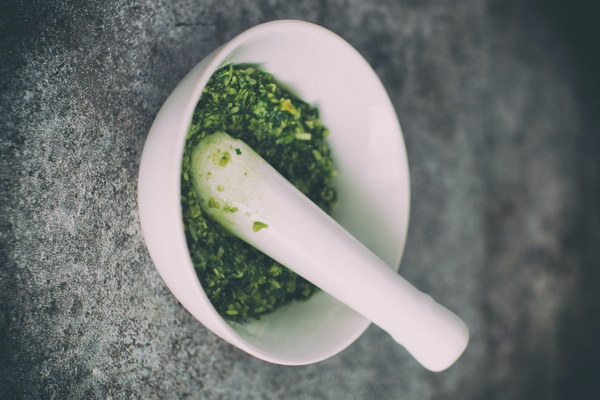The Time-Honored Secret How Mugwort Works as a Natural Moisture Absorber
In the realm of traditional Chinese medicine, mugwort (Ai Cao) has been cherished for centuries for its remarkable properties in alleviating dampness in the body. The concept of dampness, or Shi, is central to TCM, referring to a condition where excess moisture accumulates in the body, leading to a host of discomforts. This article delves into the science behind mugwort's efficacy as a natural moisture absorber and its role in restoring balance to the body.
Mugwort, scientifically known as Artemisia argyi, is a herbaceous plant with a rich history in Chinese folk medicine. Its use dates back to the Shang Dynasty, over 3000 years ago. The herb is typically harvested during the summer solstice when it is believed to be at its peak potency. The dried leaves are then used in various forms, such as in herbal teas, moxibustion (the burning of mugwort near the skin to stimulate acupuncture points), and as a component in herbal formulas.
The mechanism through which mugwort absorbs moisture is multifaceted and can be attributed to several factors:

1. Herbal Properties: Mugwort is known for its warming properties. In TCM, it is thought that dampness is a cold, heavy substance that can settle in various parts of the body, causing stagnation and discomfort. By warming the body, mugwort helps to expel the dampness, restoring the free flow of Qi (vital energy).
2. Circulatory Stimulation: When used in moxibustion, mugwort is applied to specific acupuncture points, which are believed to be the entry and exit points for Qi. This stimulation can improve blood circulation, helping to remove stagnant moisture and toxins from the body.
3. Detoxification: Mugwort has natural diuretic properties that encourage the kidneys to expel excess fluid. This aids in the elimination of dampness and can alleviate symptoms such as bloating, fatigue, and weight gain associated with dampness.
4. Antioxidant and Anti-Inflammatory Effects: The compounds found in mugwort, such as sesquiterpenes and flavonoids, have antioxidant and anti-inflammatory properties. These can help to reduce inflammation and protect the body from oxidative stress, which may contribute to dampness-related conditions.
5. Digestive Support: In TCM, dampness is often associated with poor digestion. Mugwort can support the digestive system by increasing appetite and aiding in the absorption of nutrients, thereby helping to balance the body's moisture levels.
While the scientific community has yet to fully uncover the exact mechanism of mugwort's action, there is growing evidence to support its traditional uses. Studies have shown that mugwort can have a positive impact on various health conditions, including arthritis, menstrual irregularities, and fatigue, all of which may be related to dampness in the body.
It is important to note that while mugwort can be a beneficial addition to a wellness routine, it should be used under the guidance of a qualified healthcare provider. Certain individuals may experience side effects, and mugwort should be avoided during pregnancy or by those with certain medical conditions.
In conclusion, mugwort's ability to absorb moisture is a testament to the complexity and effectiveness of traditional Chinese medicine. As a natural moisture absorber, mugwort offers a holistic approach to balancing the body's internal environment, providing relief from the discomforts associated with dampness and promoting overall health and well-being.









